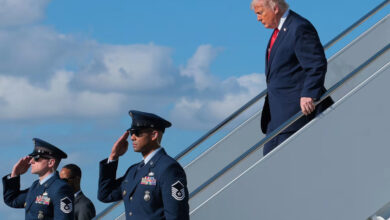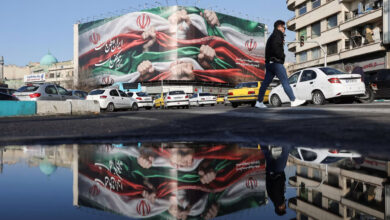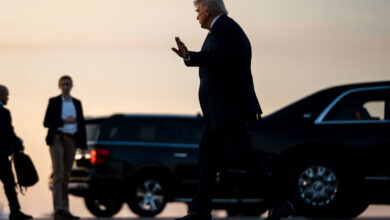Among 250,000 classified US cables which began to be released on 28 November by online whistle-blower WikiLeaks are diplomatic messages that expose Egypt's alliance with the US in recent years. These include Cairo-issued advice to US officials on Iraq, pledges to pressure Hamas, and warnings of an Iranian threat.
While Egyptian officials delivered no official responses on the leak, analysts believe the release constitutes a diplomatic embarrassment for Cairo on several levels.
In a report by US Ambassador to Egypt Margaret Scobey, dated February 2009, Scobey writes, “The Egyptians have long felt that, at best, we take them for granted; and at worst, we deliberately ignore their advice while trying to force our point of view on them.” Scobey described Egypt as a “a stubborn and recalcitrant ally and added that giving worth to its self-perception as a central regional player is crucial to guarantee its “effectiveness on regional issues including Sudan, Lebanon and Iraq.”
On Iraq, President Hosni Mubarak was quoted as telling a congressional delegation in May 2008: "Strengthen the armed forces, relax your hold, and then you will have a coup…Then we will have a dictator, but a fair one. Forget democracy, the Iraqis are by their nature too tough."
In a July 2008 meeting with US Senator John Kerry, Mubarak said Iran's sponsorship of terrorism is "well-known but I cannot say it publicly. It would create a dangerous situation." According to the cables, Mubarak advocated sanctions to contain the Iranian regime, but said Egypt could not endorse the move for fear of an aggressive response. Other reports echoed Mubarak’s concern.
Another cable dated November 2009 revealed the minutes of a meeting between a senior State Department official and an official from the Israeli military establishment. A representative from Mossad said, "Tehran understands that by reacting positively to engagement, Iran can continue to 'play for time' and avoid sanctions while pursuing its strategic objective to obtain a military nuclear capability.” From the Mossad’s perspective, according to the release, Iran will do anything to have the technological capability of building a nuclear weapon by 2010-2011. The cables also revealed that Saudi Arabia’s pushed for US military intervention in Iran in an effort to end Iranian meddling in Arab affairs.
On Hamas, Egyptian Chief of Intelligence Omar Suleiman was quoted in January 2008 as saying in another “…The GOE [Government of Egypt] would keep pressure on Hamas but will maintain 'low-level' contacts with Hamas. Egypt, he said, wants Hamas isolated. The Qassam rocket attacks must stop. When they do stop, the GOE will ask Israel to meet quiet with quiet.”
Other cables show Secretary of State’s Hillary Clinton directing US diplomats to gather intelligence on UN officials, a move described by the Guardian as “blur[ing] the line between diplomacy and spying.” In that particular cable is a directive to collect technical details on the communications systems used by top UN officials, including passwords and personal encryption keys.
In Australia, the native country of WikiLeaks founder Julian Assange, police have been investigating whether the latest disclosure violates Australian law. Attorney General Robert McClelland said on Monday there are "potentially a number of criminal laws" that could have been breached.
Besides publishing leaks on its official website, WikiLeaks mobilizes international mainstream media to publish the confidential information. The latest releases have been passed on to five major newspapers including Le Monde, The Guardian, Die Speigel, The New York Times and El Pais. In addition to Assange, Wikileaks is run largely by a group of Chinese dissidents, journalists, mathematicians and start-up company technologists from the US, Taiwan, Europe, Australia and South Africa, according to the organization's website.




